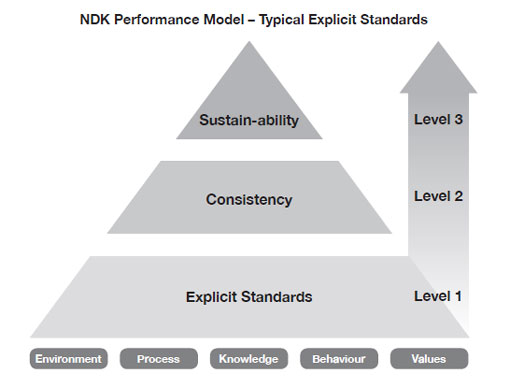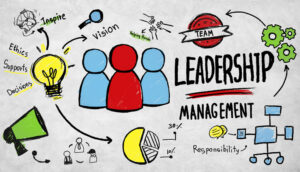As part of our Contact Centre Manifesto series, our panel of training experts explain how to train your Team Leaders to best support your agents.
The Problem
Team Leaders have the power to make or break the morale of their team, yet they are rarely given the training and support they need to do a great job.
Here are some common reasons why Team Leaders underperform:
They Are Promoted Too Soon
High staff turnover rates can result in agents being promoted into a Team Leader role for no other reason than to fill a vacancy. They are usually then left to “get on with the job” with little training and support.
They End Up Playing “First Line Support”
Instead of spending their time on the floor coaching agents, Team Leaders can end up becoming “first line support” – wasting their days fixing IT issues, acting as a substitute for a knowledge base, and reminding agents of important updates.
They Spend Too Much Time Answering Emails
Some Team Leaders believe that their core job is to answer emails from upper management. This can distract them from spending proper time on the contact centre floor.
They Are Neglected in Terms of Formal Management
“In my experience the Team Managers are the most neglected in terms of formal management development and also are the ones who often hold the key to unlocking the performance of the advisors on the phones.” – Kath
They Are More Concerned With Being Friends With Their Team
“I struggle with Team Leaders wanting to be friends rather than leaders.” – Annahita
They Are Sandwiched Between Upper Management And Their Team
“A Team Leader’s role is one the hardest jobs in any organisation, as they are sandwiched between management and their team. On the one hand, they follow policies and do paperwork for the managers; on the other hand, they try hard to get most KPIs from their team.” – Taj
Seven Steps to Effective Call Centre Team Leader Training
1. Decide What You Want Your Team Leaders to be Capable of Doing
“You need to decide what you want your Team Leaders to be capable of doing before writing your training programme.” – Martin Hill-Wilson, Brainfood Consulting
What do you want to provide as training for your Team Leaders? This will depend on what you want them to be capable of doing.
You need to clarify what being a Team Leader means in your organisation in order to understand personal development needs.
That’s a broad spectrum these days, and the two ends of the spectrum are:
- Being part of a command control structure focused on maintaining conformance in a KPI-driven performance culture
- Acting as an advisor coach and customer journey improvement facilitator in service cultures that have joined the dots between customer and employee engagement
Most service organisations are wriggling free of the former and edging their way towards a customer-experience-centred approach.
Focus Your Training Decisions Around the Future of the Contact Centre Industry
We can expect significant failure to adapt and a growing recognition that both advisor and Team Leader profiles are going to be rewritten as contact centres adapt to the expectations for agile service delivery.

“My view is that the number of people will significantly reduce, as Intelligent Assistance in the context of greater mobile engagement gains traction and live assistance becomes more of a tier-three support service,” – Martin Hill-Wilson.
If you add this forecast to the existing ideas around the Team Leader as a Coach, the competencies required become clearer.
Create a Team Leader Development Strategy
Once you have established a firm idea of what being a Team Leader means in your organisation, you should create a Team Leader Development Strategy.
This will act as a reference point to ensure consistency across the contact centre.
Here are 14 key items that should be on your Team Leader Development Strategy:
- Understanding the brand’s customer experience ambitions and the contact centre’s responsibilities
- In-depth insight into what matters to customers in all major customer journeys that the contact centre supports
- Understanding security, compliance and fiduciary responsibilities
- Knowing how the organisation measures success and their role in that achievement
- Practical understanding of what motivates people to perform
- The value and habit of personal development goals
- Developing interpersonal communication skills
- The art and techniques of coaching
- Knowing how to develop a team and its role in supporting individual service excellence
- How to establish and support a self-managing performance culture
- Managing team and individual performance
- How to support under-performance
- How to develop a ‘voice of the team’ and ensure it is heard and acted on
- A day/week/month in the life of a coaching-orientated Team Leader
2. Explain the Challenges That Come With Being a Team Leader So They Have a Chance to Mentally Prepare
“You need to tell Team Leaders about the challenges that come with the role” – Nick Drake-Knight
Team Leadership is a Tricky Business
Teams can be an odd collective. Members come with personal skills and attributes, as well as specific individual needs and behavioural characteristics which don’t always fit perfectly with the achievement of organisational goals.
Blending task delivery with effective people leadership is a testing skill, even for the most accomplished and experienced Team Leader.
Newly promoted Team Leaders may find their role rather more challenging than they first thought. Team leadership requires dexterity and flexibility in communication as much as it does technical planning and execution.
Investment in Their Team Will be Both Challenging and Rewarding

You need to explain to your Team Leaders that investment in people, in all its forms, will be the single most challenging (and potentially rewarding) activity they will face in their role.
They must learn that team members can be catalysts at the heart of operations, driving the business forward with innovative thinking, commitment and skills.
But they should also be aware that these same team members can be challenging and volatile, as much as dedicated and reliable, caring and supportive, hard-working or lazy, focused or scatty, supportive or disruptive, detailed or big-picture aware, goal-driven, inspired and… just about everything else in between!
3. Teach a Structured Approach to Overcoming These Challenges
“You also need to train Team Leaders on how to overcome these challenges” – Nick Drake-Knight
Team Members Need to Understand What is Expected of Them
The challenge is that, although people are not machines, they do have numerous ‘settings’ which can be affected by how the team is structured, managed and led.
“What all team members have in common is a fundamental need to understand what is expected of them, referred to as ‘Task Clarity’,” said Nick. “This may seem obvious, and yet too many organisations I have helped over the years have ‘Fuzzy Leadership’; that is, Team Leaders are unclear with their team members on what represents excellence of performance and how they communicate this.”
Using the NDK Performance Model
One way to help resolve this is to apply the NDK Performance Model.
Here’s the model:

Level 1 – Explicit Standards
Outstanding call centre Team Leaders have an explicit set of performance standards spelling out exactly what is expected of team members.
This approach applies irrespective of the industry sector or customer context. People need to know what is expected of them if they are to work to a given standard.
Explicit standards in teams usually come in 5 categories:
- Environment – expectations regarding maintenance of physical surroundings within which a call centre agent operates, including how resources are to be used
- Process – compliance with the procedures, practices and flow of activities required to achieve success
- Knowledge – expectations regarding an agent’s underpinning knowledge and understanding of a product or service
- Behaviour – expectations of personal communication, verbal and non-verbal, which contribute to effective outcomes for the customer, for the individual team player and for the whole team
- Values – where a set of organisational and call centre team values, or cultural expectations, are in place.
Level 2 – Consistency
Top-performing call centre Team Leaders strive for consistency of excellence across the team, not just in key individuals.
Effective training can help with this, especially when it is competence based and aligned with the explicit standards prescribed by the business and honed by the team leader.
But here’s the rub: consistency is of limited value if it’s temporary.
World-class Team Leaders know that performance excellence must be delivered day in and day out, long after the latest training initiative has been launched.
In some organisations, training is like throwing wet mud against the wall: most of the mud slides off the wall immediately.
Level 3 – Sustainability
In fact, call centre agent training is a complete waste of energy and resources unless it is made sustainable.
Key to sustainability is the development of a coaching philosophy and leadership behaviours that allow Team Leaders to keep the plates spinning long after an agent’s training event has passed.
Sustainability through individual and team coaching keeps the momentum up and turns the training into habitual behaviours!
4. Clarify How You Expect Your Team Leaders to Spend Their Time
“It is important that you clarify how you expect your Team Leaders to spend their time” – Carolyn Blunt
You should also explain how you expect your Team Leaders to manage their different tasks to help ensure that every aspect of the role receives equal attention across the week.
Team Leaders Should Divide Their Time Equally Between People, Task and Process
Every manager has elements of their role that they like and elements that they like less (or even hate!).
Ask your Team Leaders to think about these three words:
People
If someone has a preference for ‘people’, they will be concerned with ‘helping’ others and would hate to be seen as ‘cold’ or ‘unfeeling’.
They will empathise and be considerate but can become totally immersed in people issues, leaving the other parts of the triangle (task and process) neglected.
Task
If someone has a preference for ‘task’ they will be focused on achieving results, have a strong sense of urgency and be assertive.
However, others can see them as competitive, controlling and blunt. They might be so focused on getting things done that the people and process elements can be overlooked.
Process
Those with a preference for ‘process’ need to get things right. They are focused on correctness, order, and logic and have a strong sense of fairness and personal integrity.
However, they would rather be right than popular! If they are too task focused, they can be seen as unemotional, detailed and cautious.
They will go out of their way to minimise risk and conduct lengthy analysis if needed – even if the task and people elements are suffering.
Effective Team Leaders need to focus on people, task and process activities in equal measure.
If your Team Leaders are too focused on their natural preference, ask them what they could be neglecting to help them find a positive, day-to-day balance.
Team Leaders Should Put Their Personal Preferences Aside
Team Leaders need to be aware of whether or not members of their team are rewarded for meeting their own personal preferences and focus.
This misunderstanding can be at the root of the perception of a ‘difficult performer’, since we all like people who are similar to ourselves – life is just easier that way.
Where people are led by a manager of a different preference, there must be a level of flexibility on the manager’s part to meet the needs of the individual.
Failure to value people in the way they like to be appreciated can lead to higher levels of staff turnover.
Often managers fall into the trap of recruiting a team of ‘clones’, which can mean everyone gets along well, but serious ‘gaps’ in the skills matrix occur.
Invest Time in Developing Self-Awareness
Investing time in developing self-awareness and wider skills in non-preferred areas for Team Leaders and their team may stop the continuous cycle of recruiting and replacing people (or sorting out squabbles).
Team Leaders should ask themselves “How might my team’s performance be different if I changed my focus?”
5. Team Leaders Need to be Taught How to Manage a Team of Self-Sufficient Agents
“Team Leaders must know how to manage self-sufficient agents” – Carolyn Blunt
All Team Leaders should be taught the skills they need to develop and manage a self-sufficient team of agents.
This approach will help them to make the most of their working day, instead of being sucked into “babysitting” and fixing minor issues.
Here are a few things to keep in mind:
Team Leaders Shouldn’t Indulge Agents in Their Silly Quibbles

Many Team Leaders spend their days feeling like a glorified babysitter, ticking very little off their strategic to-do list.
A good Team Leader will command such respect that agents wouldn’t dream of taking the same silly little quibbles and gripes to them over and over. They wouldn’t allow that.
…Instead They Should Ask Questions to Help Agents Resolve Their Own Problems
A good way to encourage this positive relationship is for Team Leaders to ask questions and make agents recognise that they had the answer within themselves or knew where to go to get it.
This should hopefully mean that they think twice before approaching their Team Leader with lazy questions again.
If a Team Leader is being nice and helpful, it sends out the message that it is ok for agents to bring issues and squabbles to them – when really they should be capable of resolving it amongst themselves.
Team Leaders Need to Stop Bending Over Backwards for Their Team
Some Team Leaders, often in their eagerness to please their own manager, take some of the mantras of leadership (such as being genuinely interested, listening and approachable) too far and allow their team to steal precious time and take advantage if they are that way inclined.
Being the best Team Leader isn’t about bending over backwards every minute of the day. They’ll soon feel like they are being pulled in a million different directions. People will take advantage of them and their boss will be disappointed when they don’t get through the other work they need to do.
Here are some solutions:
Be Firm But Fair With Everyone
They don’t need to show power or control. In fact, they want to think about how every action they do demonstrates that they put the organisation and the team before themselves, but not at the expense of getting the job done.
Be Open and Honest
If the answer to a request or idea is no, then a good Team Leader will explain why.
If they have to do some digging to get to the real ‘why’ then they should do it. Their team will still like to know that they tried for them and they’ll appreciate knowing some facts and figures.
Show Respect for Themselves and Everyone Else
A Team Leader’s values and how they behave are watched by everyone around them.
If they abuse themselves by not getting enough sleep, being unhealthy or by being negative, then this is really demoralising for their team.
Why would they want to aspire to follow in their Team Leader’s footsteps? They’ll think “Being a manager in this place is clearly not worth it”, and may even feel sorry for them. Carrying that sympathy is only taking an agent’s energy away from the customers that they need to serve on the phones.
So once they have their own head and heart in order, Team Leaders need to think about their ability to raise the performance of their team.
A Great Team Leader Can Unlock 20% Extra Discretionary Effort in Their Team
According to research, everyone has about 20% extra discretionary effort within them.
Whether a team chooses to give it or not on a daily basis depends a lot on what the Team Leader does.
6. Explain the Value of Constructive Feedback and Teach Team Leaders How to Give It (fairly) to Their Agents
“Team Leaders need to know how to deliver constructive feedback” – Carolyn Blunt
Team Leaders should understand the value of constructive feedback and be trained to give it in a way that is both fair and motivating.
Positive Feedback Should Be Specific, Public and Genuine
Effective Team Leaders give feedback – both positive and adjusting – so that agents know the standards required.
Positive feedback should be specific, public and genuine.
Everyone likes to feel they are doing a good job, so Team Leaders shouldn’t hold back – praise is the easiest and most cost-effective solution to an immediate feel-good factor for agents.
Team Leaders Should Praise a Member of Their Team Every Day
Team Leaders should look for something to praise a member of their team for every day and rotate the team member receiving the praise fairly.
They may have to go looking for things to praise, but it is a good habit to get into.
Asking internal customers for feedback, earwigging into conversations, and asking for ideas, opinions or volunteers all create opportunities for praise.
A Lack of Corrective Feedback Could Lead to Widespread Disgruntlement
Team Leaders also need to understand that corrective feedback is just as important as giving praise when it comes to inspiring and motivating a team of agents.
If a Team Leader fails to address a team member who cruises below average, star performers will pick up the slack, but slowly and surely they become (quite rightly) disgruntled at having to do so.
Other team members start to think “if they can get away with it, so will I” and a culture permeates where it is okay to have longer lunches, arrive a little later, leave a little earlier, spend hours on social networking websites and make long personal phone calls.
All of these erode productivity, as well as the team, department and organisational performance.
Avoiding Difficult Conversations Could See Smaller Problems Escalate
If Team Leaders dislike giving ‘criticism’, they should try to think of it as ‘adjusting feedback’ – and also consider the consequences for their team’s performance if they don’t have those difficult conversations.
For example, the team member has drifted slightly off course and the Team Leader needs to adjust them back on track.
Giving this feedback immediately will mean they have not deviated too far from the norm. Wait a while, and the Team Leader will have a much bigger problem on their hands.
7. Offer a Continued Programme of Support to Your Team Leaders
“Team Leaders need to be supported with a continued programme of support to ensure success” – Simon Thatcher
Training Team Leaders isn’t a “sheep-dipping” exercise that can be done once a year. For the best outcomes for everyone involved, you need to offer a continuing programme of structure and support.
Ensure You Have a Clear Measurement for Success
Just like any other training that you might carry out, you have to ensure a method to check how effective the training has been.
This can sometimes be challenging as you are unlikely to be able to measure success through tests and role plays. For example, how would you measure that an individual has developed their empathy?
In these situations, consider observational feedback or 360 feedback from peers.
Talk to Your Team Leaders and Their Line Managers to Uncover Real Skills Gaps

It is common for Team Leaders to enter a training session and ask “So why am I here?” – so you also need to ask the question “Who wants and needs the training?”
Start by carrying out a training needs analysis – and ask the delegates which skills they want to develop. They can choose from a pre-set list if you want.
This should be followed up by their line manager completing the same analysis and answering the question based on their observations of the Team Leader.
You then compare the responses to determine which areas you then specifically invest your time and money in.
Note: If you do find Team Leaders telling you they don’t need any additional support, then don’t force them into training.
Offer a Variety of Training Options
You need to deliver your training agenda in an imaginative way – with a mix of learning approaches of which classroom learning is just one.
Whether this is a structured buddy system, e-learning or flipped learning (focusing on active learning strategies), it’s important to understand that what works for one person may not work for another.
Allow Time for Soft Skills to Be Practised and Properly Embedded
One of the biggest issues facing Team Leader training is that soft skills are not developed overnight. They take time to embed and require practice and a culture that allows delegates to make mistakes and learn from them.
In an ideal world, you would want to develop and implement these skills before individuals take on the role of Team Leader.
A well-designed and well-supported soft skills programme is often the key that lets managers become true leaders.
Soft skills allow agents to communicate and learn effectively, for advice on training soft skills in your agents, read our article: 8 ‘Soft Skills’ Training Exercises
“Higher Up” Management Teams Need to Lead by Example
Expectations of Team Leaders in regard to the training agenda and style of leadership need to be actively supported and demonstrated by whoever manages them.
Team Leaders need positive role models too!
Top Tips Maximise Your Team Leadership
Here are some handy tips to help your Team Leaders and get the best out of their teams:
Get Your Measurements Right
The role of the strategic leader is to understand how you’re measuring, how you’re reporting and the voice of the customer.
The second area is around employee engagement and understanding that high advisor satisfaction score does not equal good engagement. Somebody can be happy in a job, but unproductive.
So, understanding everything that you measure, as well as how and why you measure it is very important and then strategically you will also have to look at how to get more out of less.
For more on the topic of advisor engagement, read our article: How to Measure Employee Engagement
Use Tools to Spot Skill Gaps

There are tools out there that can help you identify skill gaps which need the most coaching for individual agents and the wider contact centre.
You don’t have to scan through all the calls manually yourselves you can look at 100% of those calls and quickly pinpoint which ones to identify with speech analytics, for example.
Your agents are going to have different skill gaps so are your supervisors, so use all the tools that you have available to spot these.
Contributed by: Natalie Calvert
Don’t Force Team Leaders into Cookie-Cutter Models of Behaviour

Give Team Leaders the freedom to choose, act, and learn, as every team leader has their own unique strengths, perspectives, and leadership style.
Forcing them to fit into a rigid, one-size-fits-all model can stifle creativity, undermine their confidence, and limit their potential.
Successful leadership thrives on adaptability, and leaders need the freedom to tailor their approaches to the needs of their team and challenges they face.
By allowing team leaders the autonomy to make decisions, experiment with strategies, and learn from their experiences, you empower them to grow in ways that align with their strengths.
This freedom fosters innovation, encourages ownership, and helps build the entrepreneurial mindset that’s essential for guiding a team to success. Emphasizing individuality over conformity can unlock their full potential and inspire them to lead authentically.
Contributed by: Dave Salisbury
Run Adherence Contests
We are running an attendance/adherence contest where we are rewarding agents for hitting their adherence goals.
This works particularly well with advisors who are working from home and are not yet used to the freedoms that come with it.
Contributed by: Laura
Be Wary of Agent Mental Health
Focus on developing agent mindsets, as angry customers and high contact volumes can trigger stress responses in advisors, impacting the customer experience and, more importantly, employee well being.
If we valued our advisors we would be investing in them and develop their essential human skills, not offering two hours of training here or there.
Contributed by: Tony
Embrace Team Huddles
We coach people for huddles and planning plays a key role. You need to make those huddles interesting as well.
Once your team gets into the habit, they actually look forward to them and actively participate.
Contributed by: Yvonne
FatFace’s contact centre have an interesting approach to team huddles, as highlighted in our article: 14 Successful Initiatives From FatFace’s Contact Centre
Team Leaders Need to Be Inspired Themselves Before Leading Their Teams
In my experience, Team Leaders need to be motivated and inspired themselves before you can even start to expect them to lead their teams.
Empowerment is key to engagement.
Contributed by: Karen Ashby
Explain and Share the Decision-Making Process
Forget about top-down management and get them involved.
Move away from top-down management and explain and share the decision-making process with team leaders. By explaining the reasoning behind your choices and inviting their input, you foster a more inclusive and transparent environment.
When team leaders understand the decision-making process, they can make better choices for their teams and feel more invested in outcomes.
Allow them to care for their team members.
Contributed by: Vincent Van Calck
Managers Should Nurture Confidence in Their Team Leaders
Team leaders need to be encouraged to believe in their abilities and bring out the best in themselves. This can only happen if their managers foster a coaching culture, offering support, guidance, and positive reinforcement.
By nurturing confidence, managers help team leaders grow and thrive, empowering them to lead with conviction and inspire their teams.
Contributed by: Clare Luckman
Teach Team Leaders How to Build Great Teams AND Have Difficult Conversations

Help team leaders recognize their strengths and use them daily to build strong, effective teams.
Focus on key skills like delegation, celebrating success, and handling difficult conversations with confidence.
By teaching these skills, you equip leaders to create high-performing teams while navigating challenges with ease.
Contributed by: Jo Hale
Empower Team Leaders to Make Decisions and Provide Constructive Feedback
Empowerment is the key!
The reason why many Team Leaders don’t operate at their optimum is usually because there is not enough support to empower them to make decisions and provide constructive, documented feedback.
Empowerment is essential for team leaders to reach their full potential, and by giving them the authority and tools they need, you enable them to lead confidently, make informed decisions, and offer valuable feedback that drives growth and improvement.
Contributed by: Deneshan Chetty
This article forms part of The Contact Centre Manifesto series
This article has been co-written by some of the best trainers currently working in the contact centre industry:
For more on the topic of helping contact centre team leaders to improve, read our articles:
- Team Leadership: What Makes a Great Leader?
- 10 Tips for Preparing Agents for Team Leadership
- 3 Ways to Develop Contact Centre Leadership at Every Level
Author: Charlie Mitchell
Reviewed by: Robyn Coppell
Published On: 12th Mar 2022 - Last modified: 4th Dec 2024
Read more about - Customer Service Strategy, Carolyn Blunt, Charlie Mitchell, Coaching, Contact Centre Manifesto, Dave Salisbury, Editor's Picks, Feedback, Jo Hale, Leadership, Listening, Martin Hill-Wilson, Natalie Calvert, Nick Drake-Knight, Simon Thatcher, Team Building, Team Management, Training







































